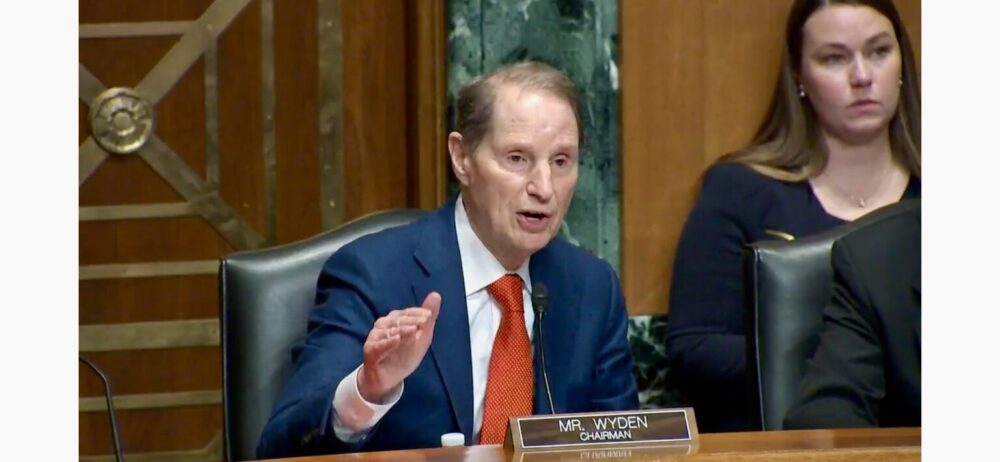WASHINGTON — Business owners, CEOs and steelworkers union leaders urged lawmakers Tuesday to quickly pass a tax bill that has been stalled in the U.S. Senate since late January.
Witnesses invited to testify on manufacturing taxation before the Senate Finance Committee told the panel the proposal, which includes the extension and restoration of three business tax breaks, is “critical” to business growth. Ta.
“Manufacturers' ability to innovate is critical to global competitiveness, and we are concerned that without appropriate tax incentives, companies will stand still for too long. said Anna Fendley, director of regulatory and state policy in Pittsburgh, Pennsylvania. She is based at United Steelworkers, she testified.
The American Families and Workers Tax Relief Act, which passed the U.S. House of Representatives in January by an overwhelming bipartisan vote of 357-70, temporarily expands the child tax credit while temporarily restoring or It has been touted by both parties as a strengthening compromise. Available to small and medium-sized businesses and corporations.
Empty space in machine shop
Courtney Silver, a business owner in North Carolina, told lawmakers that phasing out additional tax breaks for new equipment purchases under current law is “something I think about every day” as she passed by an empty machine shop. Ta. I wanted to get some new equipment in by now.
“I know a machining technology that I would like to invest in. It will shorten lead times, increase productivity, allow us to enter new markets that we are not currently in, and create jobs. High income for skilled machinists. ,” said Silver, owner and president of Ketchie Co. in Concord. Her company plays a role in the supply chain by producing mechanical parts for manufacturers.
Mark Widmer, CEO of First Solar near Toledo, Ohio, said his company plans to invest $400 million in a research and development center in the state.
He told Finance Committee Chairman Ron Wyden that the R&D tax incentives included in the stalled tax bill, if passed, would allow the company to compete more with China's solar industry. He said he was deaf.
“If we can't outperform innovation, we won't survive the onslaught we face today. This bill is about research and development, and the opportunity to defer research and development and spend R&D dollars. “It's extremely important from a perspective,” Widmer said.
“Additionally, this is also very important for the bonus depreciation that allows us to do a lot of the factory expansions that we're doing right now,” he added, noting that it's also a concern for Silver on commercial equipment and real estate purchases. He mentioned the impending deadline for tax cuts.
“So wouldn't delaying everything just create more uncertainty and delay?” Wyden, an Oregon Democrat, asked in a follow-up question.
“Thousands of jobs delayed and lost,” Widmar responded.
“Now is the time to act.”
The bill buys time for lawmakers to negotiate a looming tax bill in 2025, when many Trump-era provisions will be repealed, including child tax credit refunds, lower personal income tax rates and business tax changes. It will be.
The proposed tax bill's provisions would actually delay some provisions of the 2017 Tax Cuts and Jobs Act that critics say penalize companies that write off research and development costs.
A 2017 law required companies to start amortizing domestic R&D costs over five years starting in 2022.
Wyden's tax bill, a bicameral bill with Missouri Republican Rep. Jason Smith, would restore the ability for companies to immediately expense research and development costs through 2026.
The Wieden-Smith bill would also restore bonus depreciation to 100% through 2026, allowing companies to claim additional deductions on qualifying business purchases and assets above the allowable amount.
The 100% bonus depreciation rate originally established in the 2017 tax law has decreased over the years and is now 60%. It would continue to decline until 2027 unless lawmakers restore it with a proposed tax bill.
Mr. Silver told lawmakers that equipment purchases for his machine shop have been delayed, but he said the reduction in bonus depreciation is an “obstruction.”
“It changes the return-on-investment calculation (of the purchase). It feels like an irresponsible business decision and it feels too risky. I feel terrible, to be honest,” she told lawmakers. He spoke to the following people.
Republicans dissatisfied with child tax credit provisions
The tax bill comes as Republican senators remain opposed to a provision that would allow a tax return to temporarily use prior year's income to calculate the child tax credit if a household's income exceeds the current tax year's income. The movement surrounding this has stalled.
Republican lawmakers argue that allowing families to choose a higher annual income would disincentivize work from middle- and low-income families seeking loans. Supporters of the child tax credit dispute that argument.
“The time to act is now,” Wyden urged his colleagues.
“I remain open to all sides that want to work in good faith to accomplish this,” he said in opening remarks at Tuesday's hearing. “Some of my colleagues understand this urgency. And let's understand that if this bill stagnates, this set of policies will not be on the table in 2025. .”
Ranking Member Mike Crapo said he did not know “if there is a stronger advocate in Congress for extending and making permanent” the corporate tax breaks.
“My hope is that we can get there sooner rather than later,” said Crapo, an Idaho Republican. “As everyone knows, there are some concerns on the Republican Senate side regarding other provisions in the bill. My hope is that the Republican Senate will have a say and we can address it and do something. It’s something we can solve.” Quickly.
“These are difficult times, and like almost every issue in Congress today, there are uphill battles to be fought. That said, I do not disagree with your testimony.” he told the witnesses.


